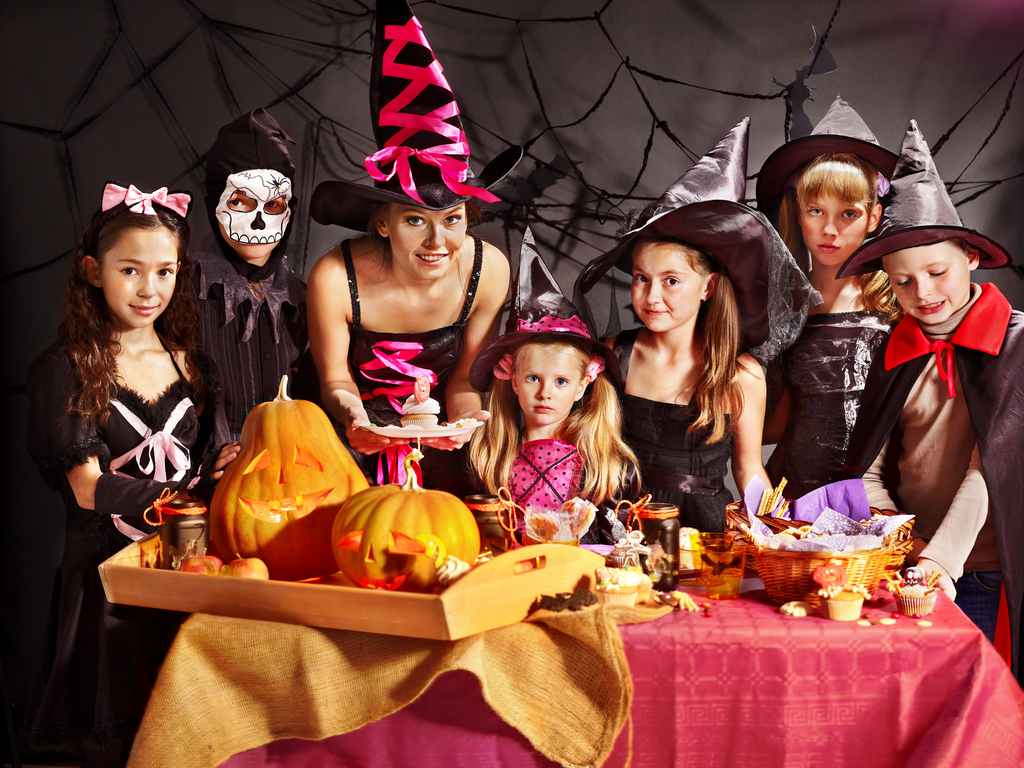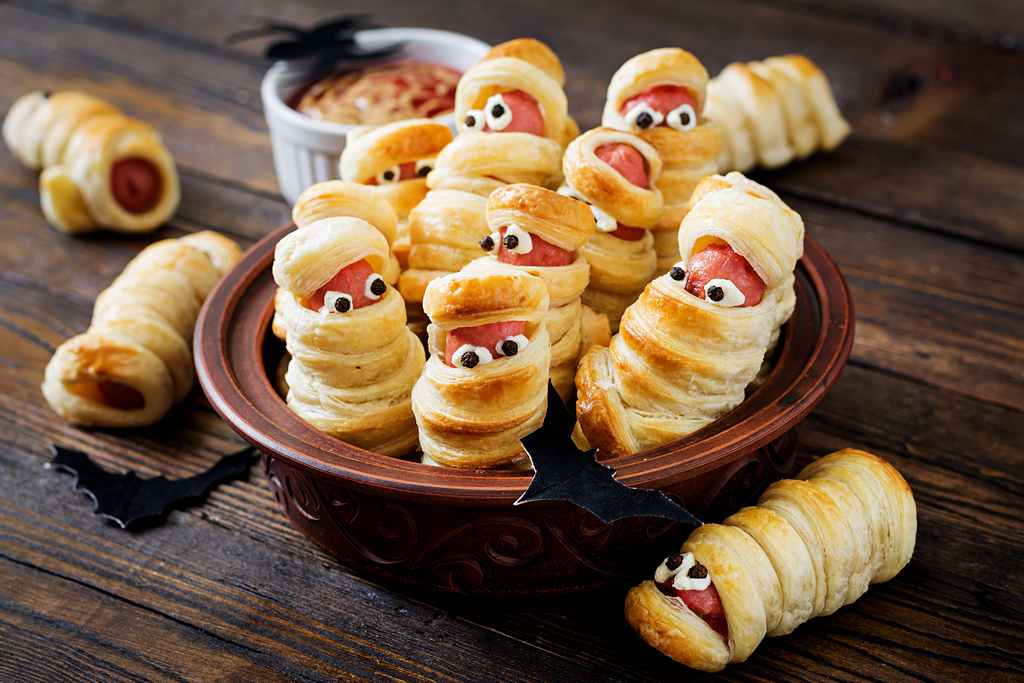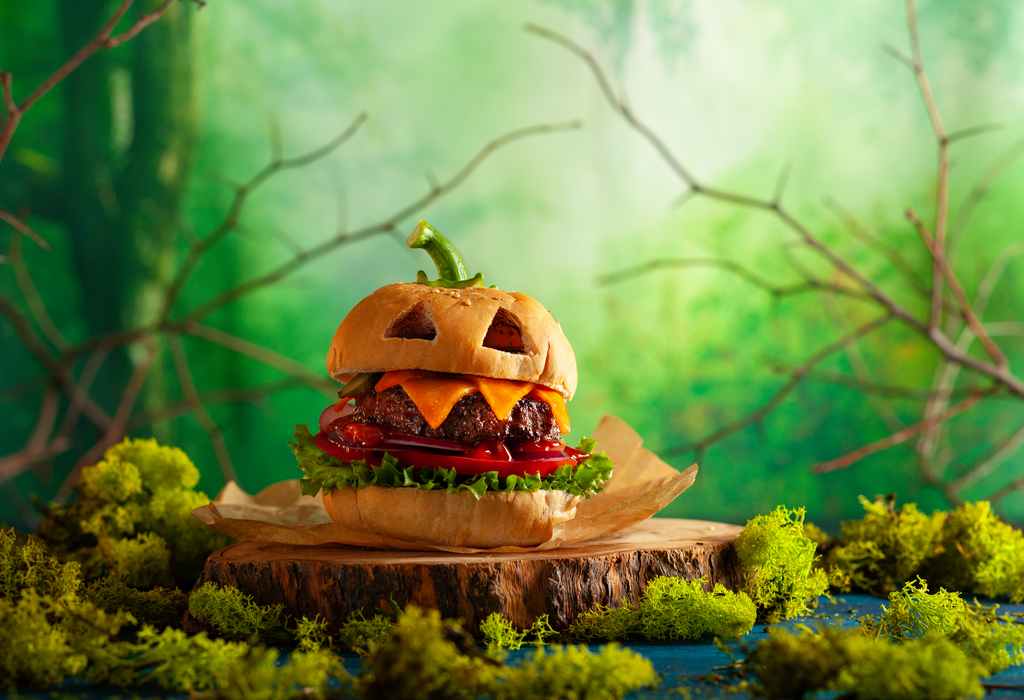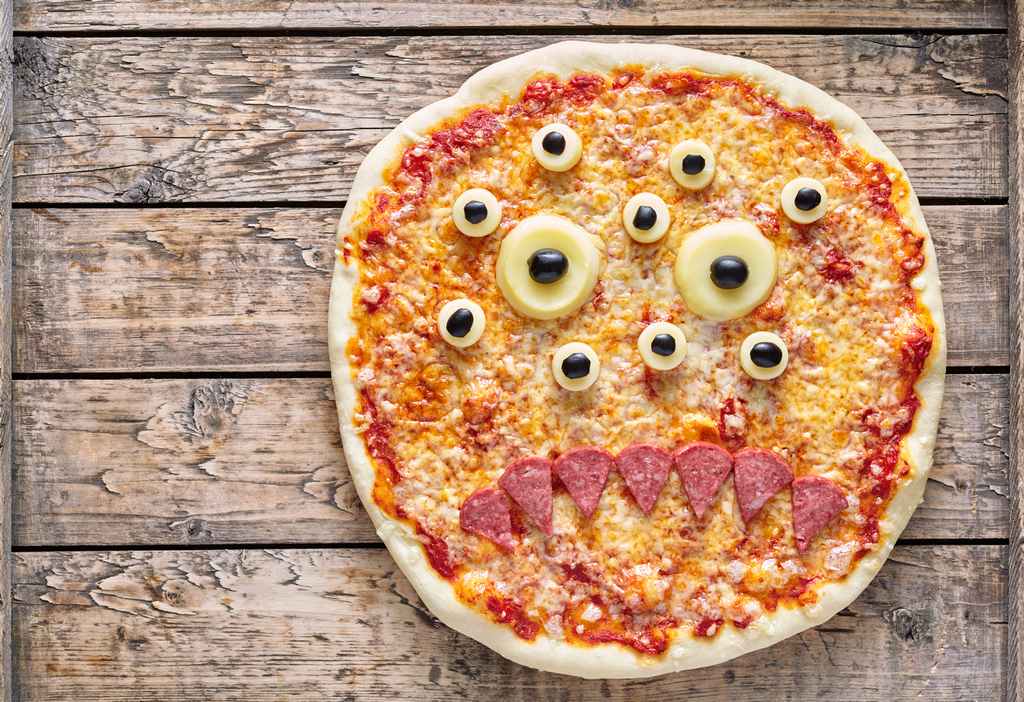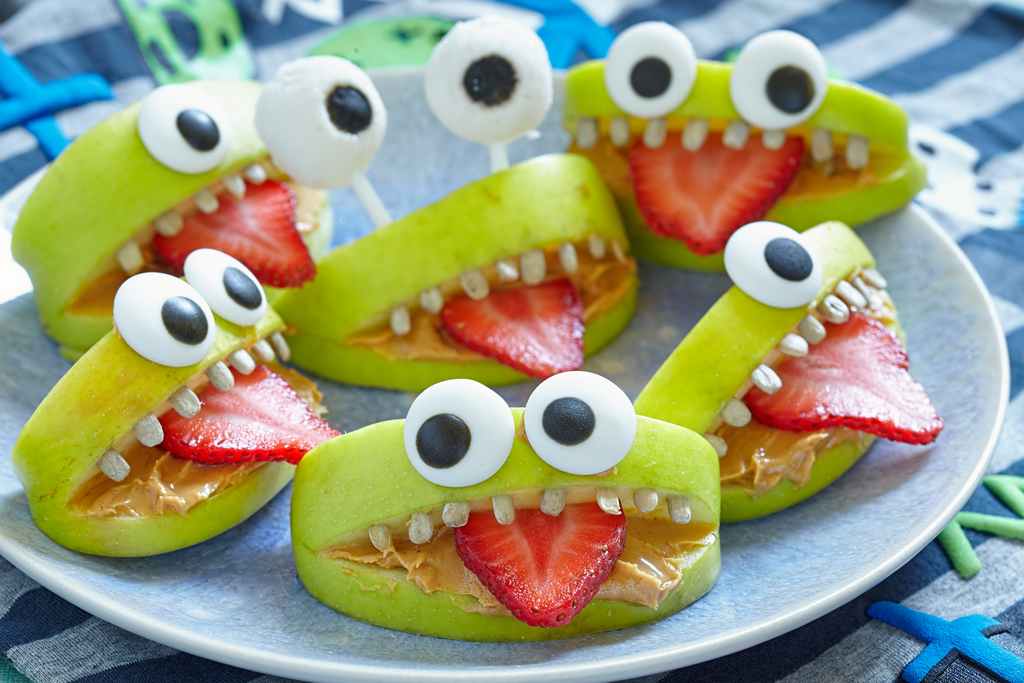Hosting your own Halloween party? Even ghosts and ghouls should follow simple food safe preparation and cooking rules for groups.
Hosting a party and cooking for groups – where foods are left out for long periods – leaves the door open for uninvited guests – bacteria that cause foodborne illness. Festive times for giving and sharing should not include sharing foodborne illness.
- Learn about foodborne pathogens, cross contamination, cold and hot food safety, and best practices to prevent foodborne illness.
- Food Manager ANSI Certification: $99.00 - Valid in all States
- Food Handler Training: Only $7.00!
- 10% OFF: Enter Promo Code "train10off" at Checkout
Halloween Party Food Safety Tips
A #Halloween party can be exciting with fun food items like halloweenies or dracloney-and-cheese.
But don’t let food illness ruin the memorable occasion, follow basic food safety principles and procedures.
- Unpasteurized juice or cider. Beware spooky cider! Unpasteurized juice or cider can contain harmful bacteria such as Salmonella. To stay safe, always serve pasteurized products at your parties.
- Raw dough or cake. No matter how tempting, don’t taste raw cookie dough or cake batter that contain uncooked eggs. Raw eggs can contain harmful bacteria such as Salmonella.
- Keep Perishable foods refrigerated. “Scare” bacteria away by keeping all perishable foods chilled until serving time. These include finger sandwiches, cheese platters, fruit or tossed salads, cold pasta dishes with meat, poultry, or seafood, and cream pies or cakes with whipped-cream and cream-cheese frostings.
- Bacteria-free apples. Bobbing for apples is a classic Halloween game, but dirty apples can present a significant food safety risk. Reduce the number of bacteria that might be present by thoroughly rinsing apples under water and using a produce brush to remove surface dirt.
Cooking for Groups
By following four simple steps, you can protect your families and friends and keep your food safe.
- Clean—Wash hands and surfaces often.
- Separate—Separate raw meats from other foods.
- Cook—Cook to the right temperature.
- Chill—Refrigerate food promptly.
Bacteria Danger Zone & Two Hour Rule
Bacteria multiply rapidly in the temperature danger zone range of temperatures between 40°F and 140°F, doubling in number in as little as 20 minutes. This range of temperatures is often called the “Danger Zone.” Never leave food out in this temperature zone for over 2 hours.
Keep food cold in the refrigerator, in coolers, or on the serving line on ice. Keep hot food in the oven, in heated chafing dishes, or in preheated steam tables, warming trays and/or slow cookers.
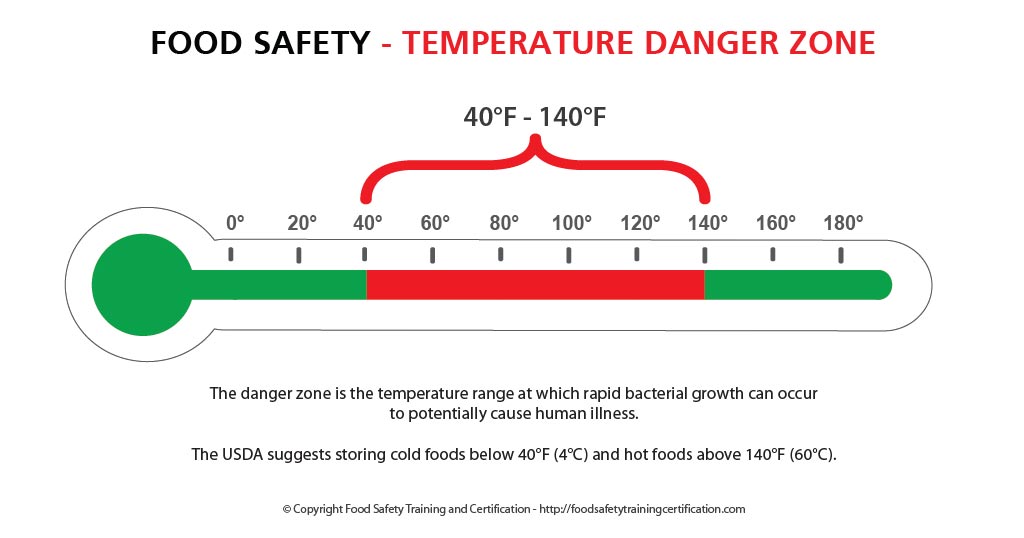
Bacteria will creep up on you if you let foods sit out too long. Don’t leave perishable goodies, such as meat, poultry, eggs and casseroles in the “Danger Zone” over 2 hours; 1 hour in temperatures above 90°F.
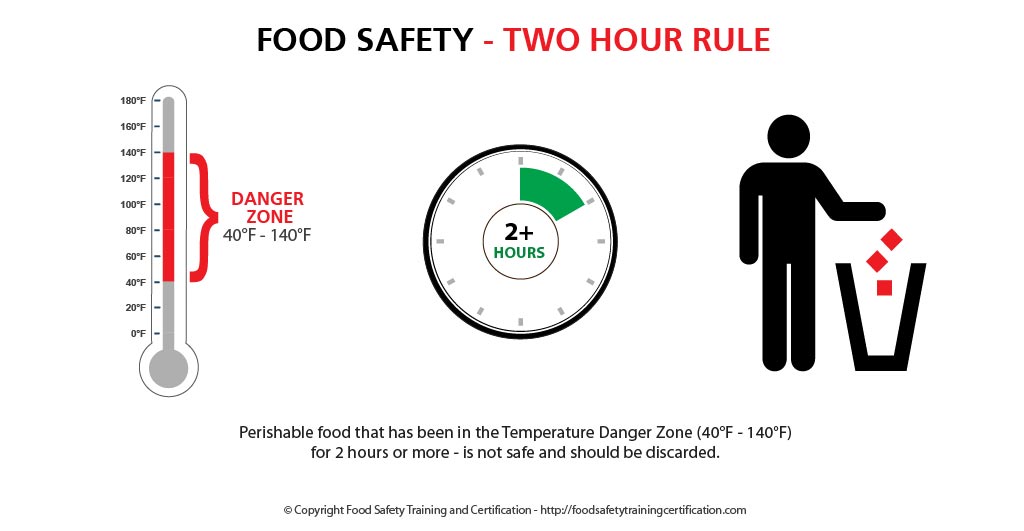
Summary
Hosting a Halloween party can be a lot of fun, but don’t let food illness ruin the memorable occasion. Make sure to follow basic food safety principles and procedures.
Additional Resources
- Woman’s Day – 50 Delicious Halloween Party Food Ideas
https://www.womansday.com/food-recipes/food-drinks/g2497/halloween-party-food/ - Cooking for Groups FSIS Image Library – Brochure graphics are offered here in a high resolution format (EPS) and low resolution format (JPG).
- 7 Food Safety Steps for Successful Community Meals | PDF
- Cooking for Groups: A Volunteer’s Guide to Food Safety (USDA)
Prepare and serve food safely for large groups such as family reunions, church dinners, and community gatherings. - “No-Show” Guests Jeopardize Food (USDA)
If a meal must be delayed or cancelled, food must be handled “just right” to remain safe. - Holiday or Party Buffets (USDA)
When foods are left out for long periods, you may have uninvited guests — bacteria that cause foodborne illness.

